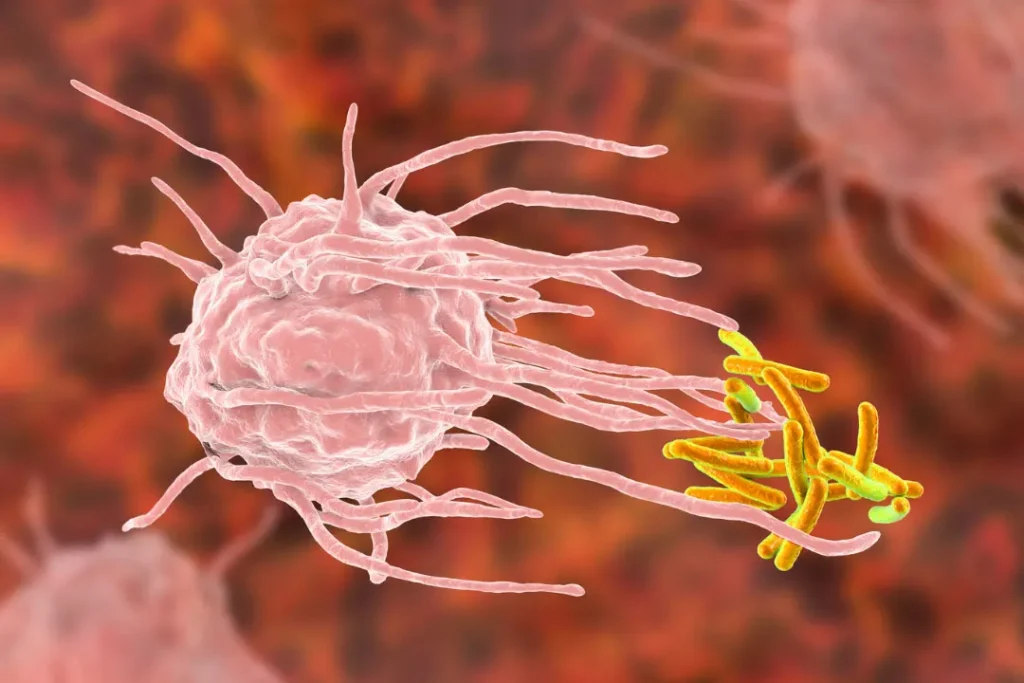A climbing plant from Nigeria with possible health advantages has lately attracted attention: Fadogia Agrestis. This plant has long been used in traditional African folk medicine for a variety of functions, including as an aphrodisiac and an anti-inflammatory. Understanding its nature, chemistry, health advantages, ideal dose, potential adverse effects, and potential interactions with other drugs is crucial for ensuring safe administration and for better understanding its prospective applications. This article aims to provide relevant information to assist readers in making informed choices as to whether to take Fadogia Agrestis as a supplement.
You May Also Like:
Diamond CBD Gummies vs. Joy Organics CBD Gummies
Sunmed CBD vs. Partnered Process CBD: Finding the Best CBD for Sleep
Fadogia Agrestis: Benefits, Dosage, Side Effects, Drug Interactions, and Other Important Information is an original (NootropicsPlanet) article.
Nature of Fadogia Agrestis
Fadogia Agrestis, a plant belonging to the Rubiaceae family, is known for its ability to climb and for its tiny, white blooms. The plant’s stems, which contain the majority of its active ingredients, are mostly used for therapeutic purposes. Alkaloids, saponins, flavonoids, and anthraquinones are among the principal chemical substances present in Fadogia Agrestis. Alkaloids and saponins are thought to be the main bioactive components of the plant that contribute to its medicinal properties.
Top Amazon Picks: Fadogia Agrestis for Enhanced Stamina and Wellness—Find Your Perfect Match!

Health Benefits of Fadogia Agrestis
Historically, many different health conditions have been treated using Fadogia Agrestis, and a few of these applications have lately received scientific support.
Sexual Health: Fadogia Agrestis is mostly well-known for its conceivable aphrodisiac effects. It is thought that the plant’s alkaloids improve sexual behavior by raising testosterone levels. Fadogia Agrestis’ traditional use may be supported by preliminary animal experiments that demonstrate a rise in testosterone levels after treatment.
Inflammatory Properties: The saponin content may be a factor in Fadogia Agrestis’ possible anti-inflammatory properties. There may be relief from inflammatory disorders thanks to saponins’ ability to alter immune response and inhibit inflammatory pathways.

Chemistry of Fadogia Agrestis
The strong chemical components present in Fadogia Agrestis stems play a vital role in the plant’s bioactive potential. Alkaloids and saponins are the two main ones, both of which are recognized for their extensive physiological effects.
Numerous medicinal plants include alkaloids, which are nitrogen-containing chemicals well known for their pharmacological effects. They interact with different enzymes and receptors all over the body to produce their desired effects. As an illustration, certain alkaloids can impact the neurological system by interacting with neurotransmitter receptors, which can change mood, cognition, or pain perception.
Moreover, saponins are complex glycosides linked to a variety of health advantages, such as cholesterol management and immune system modulation. They do this by creating complexes with cholesterol in cell membranes, which can have an effect on how well a cell functions.
Unlock Higher Testosterone and Fertility with Amazon’s Best Men’s Health Supplements—Shop Now!

Physiological Mechanisms of Action
- Hormonal Effect: It is believed that the alkaloids in Fadogia Agrestis have an impact on hormonal activity, notably testosterone production. The plant’s historical usage as an aphrodisiac may be explained by these chemicals, albeit the precise mechanism is yet unknown. They may promote testosterone synthesis or increase its bioavailability.
- Immune Modulation: Fadogia Agrestis saponins may have immunomodulatory effects. These substances can influence how different immune cells behave and interact with cell membranes. This could be a form of support regarding the plant’s usage for inflammatory disorders by causing a more balanced immune response and less inflammation.
- Controlling Cholesterol: Saponins have the capacity to bind with cholesterol and create insoluble complexes. This process can lessen dietary cholesterol absorption, which may help explain some of the plant’s possible health advantages.

Optimal Dosage of Fadogia Agrestis
The ideal Fadogia Agrestis dose is determined by a number of variables, including a person’s age, health situation, and intended result. There aren’t any established dose recommendations yet because there hasn’t been an adequate amount of research that includes human subjects/participants. Traditional use, however, can involve a usual dosage of dried stems as tea. A healthcare professional must be consulted before beginning any new supplement program.
Side Effects of Fadogia Agrestis
Fadogia Agrestis is usually regarded as safe to consume, although prolonged or excessive usage may have negative consequences. Due to the presence of saponins, potential adverse effects may include gastrointestinal pain, as well as sleep difficulties that may be related to its aphrodisiac effects. It’s crucial for you to keep an eye out for any negative effects and to alter your dosage as necessary.

Potential Substance Interactions with Fadogia Agrestis
Fadogia Agrestis may have hormonal effects, therefore it’s important to think about potential Fadogia Agrestis may have hormonal effects; therefore, it’s important for you to think about potential interactions with hormone-altering drugs like testosterone supplements or contraceptives. It could also interact with anti-inflammatory or immunosuppressive medications due to its potential anti-inflammatory characteristics.
Best Responsible Uses of Fadogia Agrestis
Fadogia Agrestis must be used responsibly, which calls for knowledge of its potential advantages and disadvantages, consultation with medical experts, attention to dose instructions and careful observation of side effects and any drug interactions. Further knowledge of Fadogia Agrestis’ medicinal potential and safety profile will surely improve its usage in a safe and effective manner as research on the plant progresses.
Fadogia Agrestis has the potential for a variety of therapeutic uses. To completely understand its processes of action and to provide clear criteria for its ideal and secure usage, more study is required.
Experience Enhanced Testosterone and Fertility with Amazon’s Best Supplements—Shop Now!

Fadogia Agrestis:
Conclusion
Fadogia Agrestis is a plant that has an extensive history. While its history is long, the body of scientific research on it is scant. Just because its formal body of research is lacking does not mean that it is not an efficacious supplement. It is often consumed as a tea, in small quantities, although no formal limits have been established regarding dosage. Whether you are looking to boost your immune system, manage your cholesterol, reduce inflammation, or improve your sexual health, supplementing your diet with Fadogia Agrestis may be an appropriate choice. Be sure to access medical advice before consuming.

References:
- “Fadogia Agrestis (Schweinf. ex Hiern) Stem Extract Restores Selected Biomolecules of Erectile Dysfunction in the Testicular and Penile Tissues of Paroxetine-Treated Wistar Rats.” Retrieved from: https://pubmed.ncbi.nlm.nih.gov/35969364/
- “Fadogia Agrestis: A Comprehensive Look at its Origins, Biology, and Properties.”Retrieved from: https://www.codeage.com/blogs/education/Fadogia-agrestis-a-comprehensive-look-at-its-origins-biology-and-properties
- “Fadogia Agrestis.” Retrieved from: https://examine.com/supplements/Fadogia-agrestis/
Important Note: The information contained in this article is for general informational purposes only, and should not be construed as health or medical advice, nor is it intended to diagnose, prevent, treat, or cure any disease or health condition. Before embarking on any diet, fitness regimen, or program of nutritional supplementation, it is advisable to consult your healthcare professional in order to determine its safety and probable efficacy in terms of your individual state of health.
Regarding Nutritional Supplements Or Other Non-Prescription Health Products: If any nutritional supplements or other non-prescription health products are mentioned in the foregoing article, any claims or statements made about them have not been evaluated by the U.S. Food and Drug Administration, and such nutritional supplements or other health products are not intended to diagnose, treat, cure, or prevent any disease.
Transform Your Men’s Health with Amazon’s Best Testosterone and Fertility Supplements—Find Out More!



